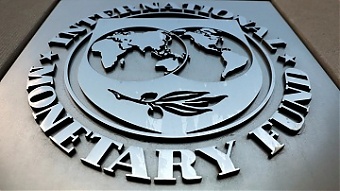Analytics, Banks, Estonia, Financial Services, Pensioners
International Internet Magazine. Baltic States news & analytics
Saturday, 20.04.2024, 07:01
IMF recommends for Estonia to retain mandatory contributions to 2nd pillar fund
 Print version
Print version |
|---|
"Assessments by the Bank of Estonia and IMF are similar. The first and second pillars complement each other and are essential in a state with an ageing population. The savings of 700,000 people are currently at stake. If there are many people leaving [the second pillar], the pension assets of those remaining will likely decrease," Estonian central bank governor Madis Muller said.
Based on the experience of other states, IMF recommends to exercise more caution when proceeding with changes in the pension system. The Fund said that it is crucial that the long-term impact of the changes be assessed and in-depth discussion of the planned changes be held with all parties included.
Both the central bank and IMF agree that the pension system must be reviewed, however. IMF also noted that if a large share of people decide to leave the second pillar fund and spend their savings, economic growth may prove very volatile.
Head of the IMF mission Cheikh Anta Gueye told that it would be advisable for Estonia to follow the example of Sweden, where the funded pension is mandatory; however, making investments from the fund has been made much more flexible.
Estonian Minister of Finance Martin Helme said that the external perspective on the Estonian economy is welcome, as are proposals aimed at mitigating possible risks the pension reform may entail. He added that, on the other hand, the coalition has been granted a mandate by the public for making the second pillar fund voluntary, which is why it has no political option of backing out of it.
Estonia's economic growth will likely decelerate over the coming years, slowing down by a half by 2050. Growth perspective is hampered in the medium to long term by low productivity and in the long term by the ageing population, while skill shortage and continued wage pressure may have an adverse impact on businesses' competitiveness.
As options for increasing employment are limited, economic growth will be increasingly dependent on businesses' ability to increase output per worker.
While IMF recommends to unwind the fiscal impulse, the Fund said there is nonetheless room to spend more on research and development, health care, education and productivity-enhancing infrastructure.
Increased investment costs must be offset by improved efficiency of public spending, which requires a stronger framework for public investment management and a partnership framework for public-private investment.
The head of the IMF mission said that as money laundering remains a topical issue, which may result in reputational damage in the future, continued anti-money laundering framework and monitoring of the latter are required as well as an increased maximum penalty for money laundering infringements. The number of financial institutions covered by inspections should also be increased.
Economic disparity remains significant, according to the IMF mission, as both relative poverty rates and the share of elderly people living in poverty remain high. Estonia's gender pay gap is also one of the largest in Europe.
The delegation of the Fund embarked on a visit to Estonia on Oct. 22. The purpose of the visit was to discuss Estonia's current economic situation and planned economic policy steps with representatives of the public and private sectors. The visit was conducted as part of the Fund's annual mission to Estonia.








 «The Baltic Course» Is Sold and Stays in Business!
«The Baltic Course» Is Sold and Stays in Business!

